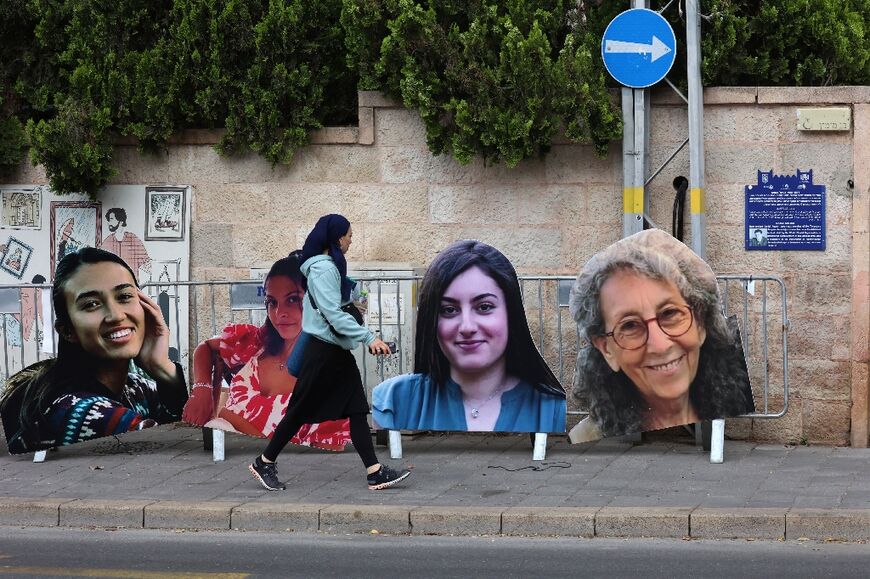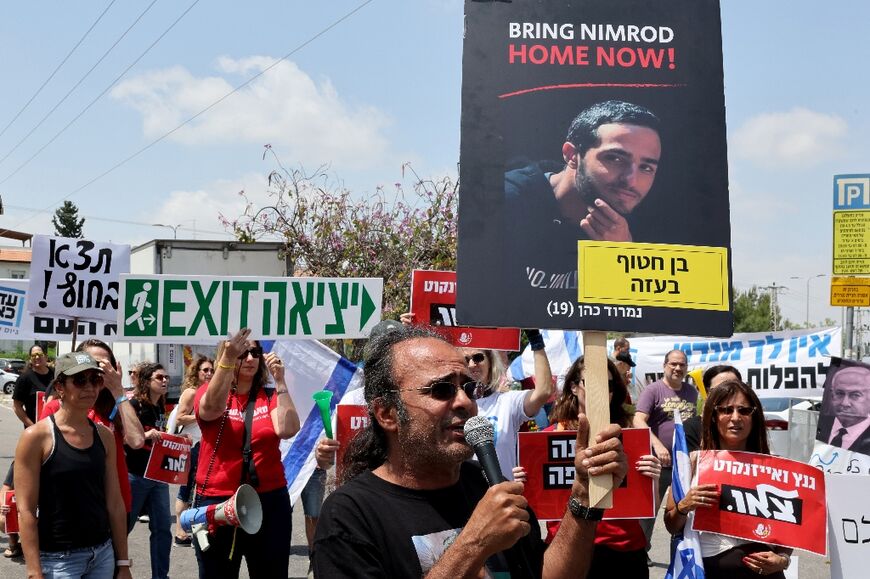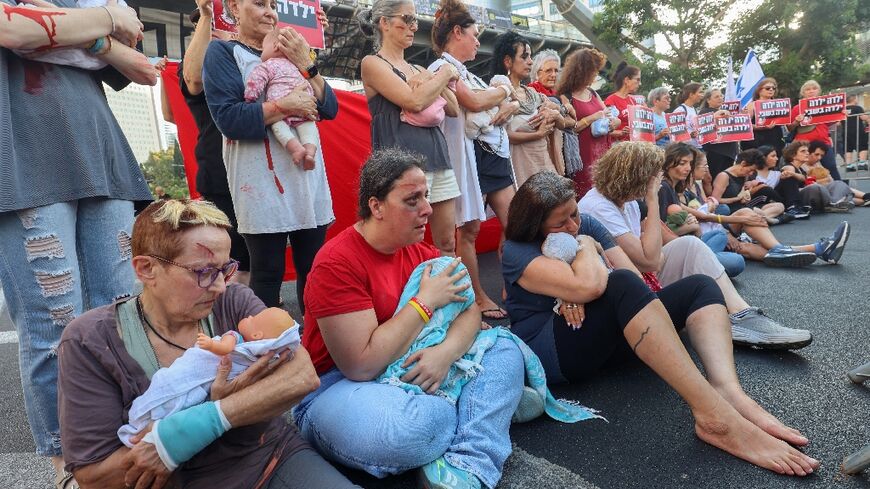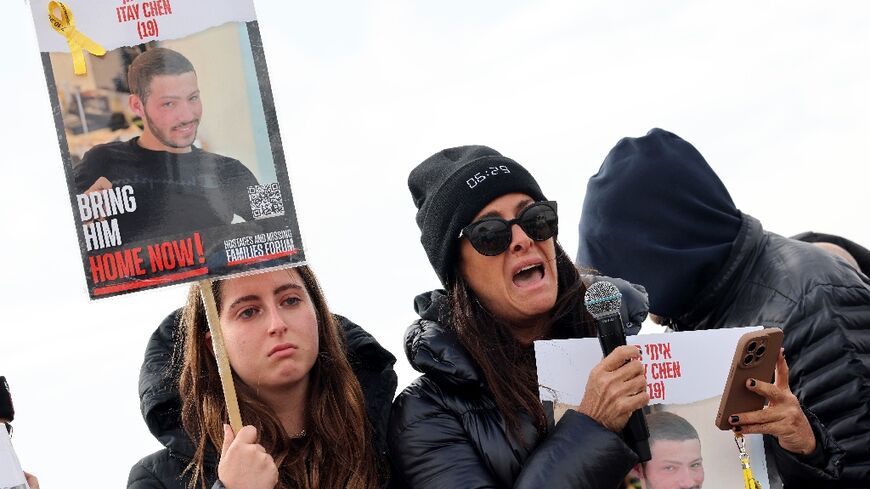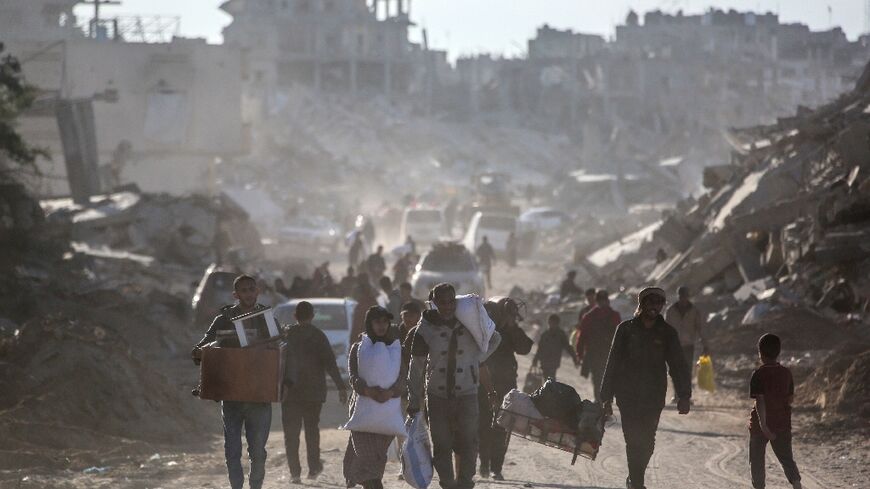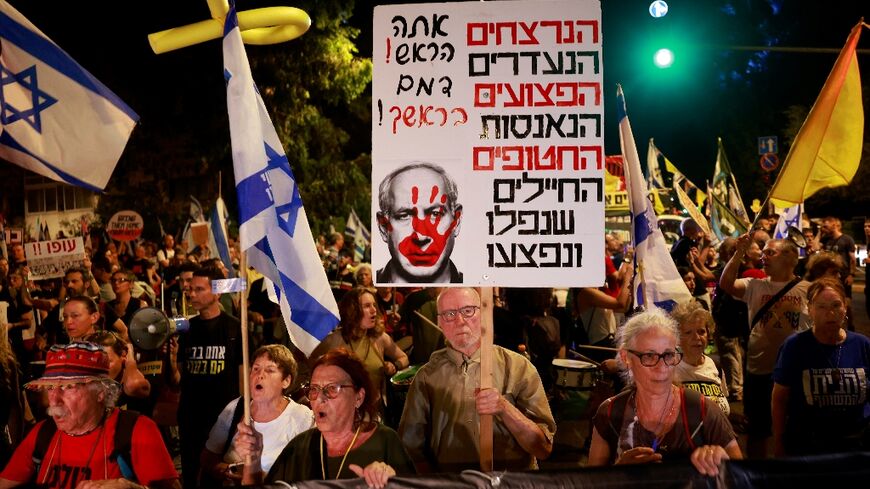Israeli hostage father takes protest to Washington
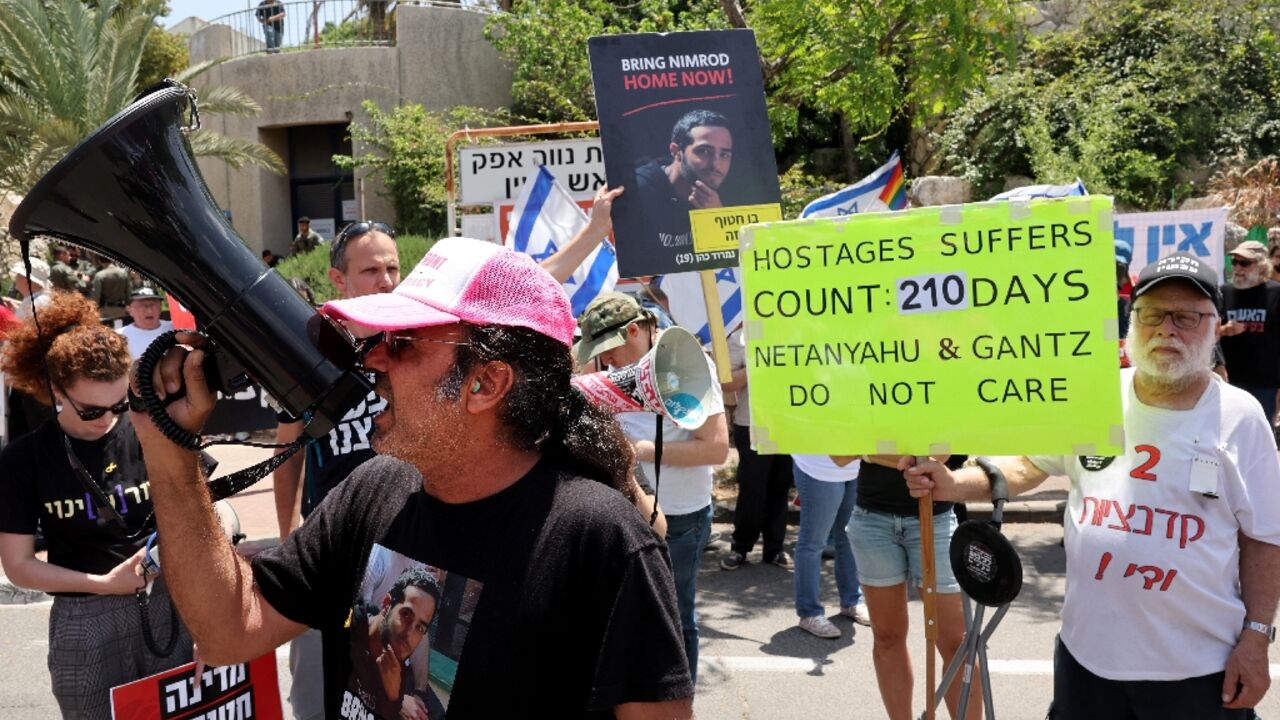
In his fight to get his kidnapped soldier son back from Gaza, Yehuda Cohen has marched through the desert, addressed tens of thousands, been spat at and called a traitor. Now, he's going to Washington.
Cohen is determined to hound the man he blames for failing to get his son Nimrod out of Hamas detention: Prime Minister Benjamin Netanyahu.
As the Israeli leader visits the United States this week to bolster support for the Gaza war, a group of hostage families, including Cohen, plans to publicly challenge him at each step.
They see it as a chance to convince Israel's main backer that Netanyahu is sabotaging a truce deal that would free their loved ones.
"Netanyahu is only interested in his political survival," said Cohen, who is at the forefront of a swelling contingent of critical hostage families.
"His extremist coalition does not want this war to end."
With far-right ministers threatening to collapse the government over any truce, Netanyahu has ramped up military force and reiterated his pledge to eliminate Hamas.
He has also sewn a rift among the hostage families by inviting some to accompany him as he addresses the US Congress on Wednesday.
Some declined, while those who accepted face furious opposition.
"He is using you," Dani Elgarat, whose brother Itzik was taken to Gaza on October 7, wrote on social media to rescued hostage Noa Argamani.
"If you are part of Netanyahu's delegation, we will find ourselves in the absurd situation of protesting against you, and we wouldn't want that."
By tailing Netanyahu to Washington, Cohen aims "to represent the other side, to talk to senators, to the media, to the Jewish community so they understand Israel is not just this horrible government working against its own people."
- 'I will do anything' -
Cohen was never a Netanyahu supporter, but his derision has sharpened after nearly 300 days of staring at his son's empty bedroom.
Palestinian militants took Nimrod Cohen from his tank after faulty brakes stymied its response to the Hamas-led attacks. His father saw it in videos posted by Hamas.
"I don't believe in feelings, but I have to believe he is still alive," said Cohen.
The Israeli military estimates 116 hostages remain in Gaza, alive and dead, among 251 seized during the October 7 attacks, which resulted in the deaths of 1,195 people, mostly civilians, according to an AFP tally based on Israeli figures.
Israel's response has killed at least 39,006 people in Gaza, also mostly civilians, according to data from the health ministry in the Hamas-ruled territory.
The military has rescued seven hostages, while more than 100 were released during a November truce. Many hostage families believe a ceasefire is their only option.
In 10 months of lobbying, Cohen, a talkative algorithm engineer with a ponytail and rimless glasses, has tried demonstrations, speeches, meeting foreign delegations and heads of state.
He took part in one four-day walk across the desert from Tel Aviv to Jerusalem. His publicity blitz has earned the derision of strangers, who have spat at and thrown eggs at protesting hostage families.
"I am the father of a soldier who has been kidnapped," he said. "I'm a patriot."
Not all the hostage families appreciate his tirades, or willingness to join anti-government demonstrators. The coalescing of protest camps has enabled Netanyahu and his supporters to dismiss them as ideologues.
"He has managed to make them look like they are concentrated on their individual interests over the nation's wellbeing," said Tamar Hermann, a senior researcher at the Israel Democracy Institute.
To the government supporters, the hostages are seen as "collateral damage" while in general, Israelis are "getting used to having hostages there", she said.
To combat attention fatigue, the families have resorted to increasingly dramatic tactics: climbing in cages dangled from overpasses, disrupting government meeting, the four-day trek in summer heat and, now, following the prime minister overseas.
The crisis "drives each and every one of us to do things we never thought we would do," Meirav Leshem Gonen, mother of hostage Romi Gonen, told a recent news conference.
"Try to think that this is your daughter. What would you do?"
For Cohen, there is no limit. "I will do anything to push for a deal to save my son."
